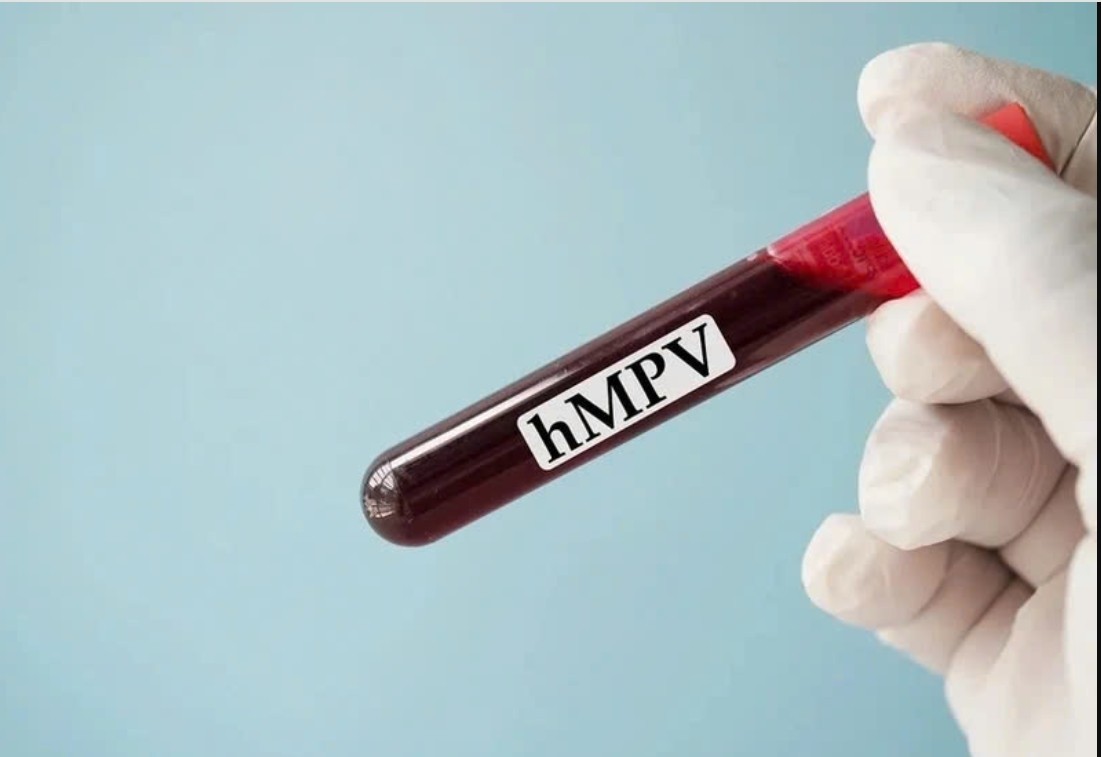What Is A Chemical Pregnancy - Symptoms, Causes And More
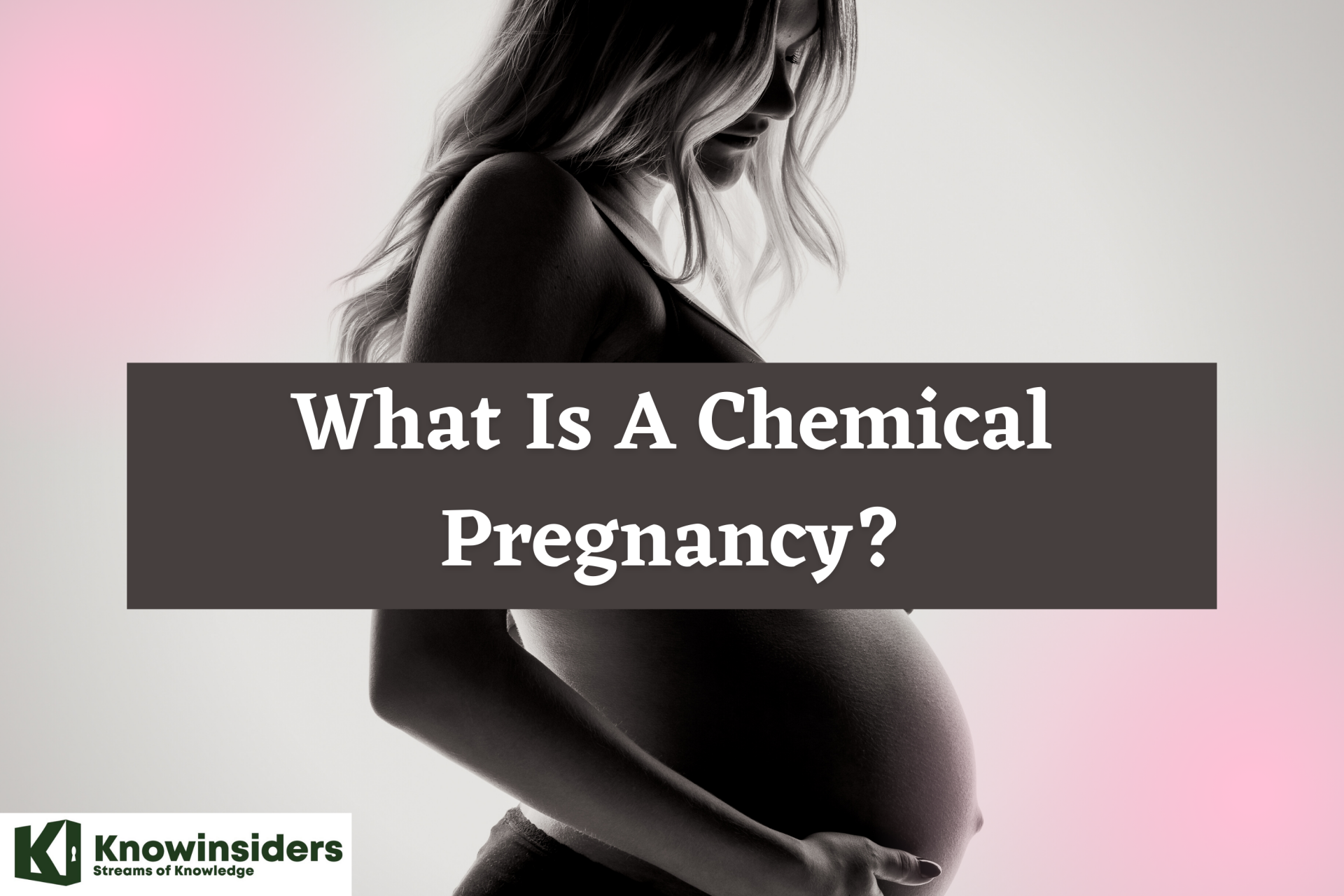 |
| What Is A Chemical Pregnancy? |
Chemical pregnancies (also known as biochemical pregnancies) are very common. A chemical pregnancy is an early type of miscarriage that takes place shortly after conception, and you may not even notice it unless you take a sensitive pregnancy test.
Below is the information that you should need know about chemical pregnancy:
What is Chemical Pregnancy?
A chemical pregnancy is a miscarriage that happens before the fifth week of pregnancy. The embryo implants in your uterus but it never takes hold. The loss happens so early that you may not even know you're pregnant.
The name "chemical pregnancy" means you had a positive result on a test that uses chemicals to detect pregnancy. It's different from a "clinical pregnancy," which means your doctor can see your growing baby on an ultrasound.
You're more likely to learn that you had a chemical pregnancy today than women who had one in the past were. Newer pregnancy tests are so sensitive that they can detect a pregnancy 3 or 4 days before you miss a period.
More than half of all pregnancies end in miscarriage. Most of those are chemical pregnancies. But it's hard to know the exact number of chemical pregnancies women have. Many of these pregnancies end before a woman has any symptoms or misses a period. Most women who have a chemical pregnancy never know it.
Any miscarriage can be upsetting even when it's early in your pregnancy. If it happens to you, take time to heal and get the help you need to cope with the loss. This article can help you understand what happens with a chemical pregnancy and how you can get the kind of help you need.
How is a chemical pregnancy diagnosed?
Sometimes women have a positive blood test or pregnancy test, but start bleeding shortly afterward. In this case, they may have more blood tests to find out what’s happening. Sometimes blood tests aren’t done because a pregnancy test may be negative after just a few days.
If blood is taken and shows that the pregnancy hormones are decreasing rather than increasing, a woman will be diagnosed as miscarrying a chemical pregnancy.
If you have any bleeding during your pregnancy, with or without pain, it’s very important to get it checked out.
What causes a chemical pregnancy?
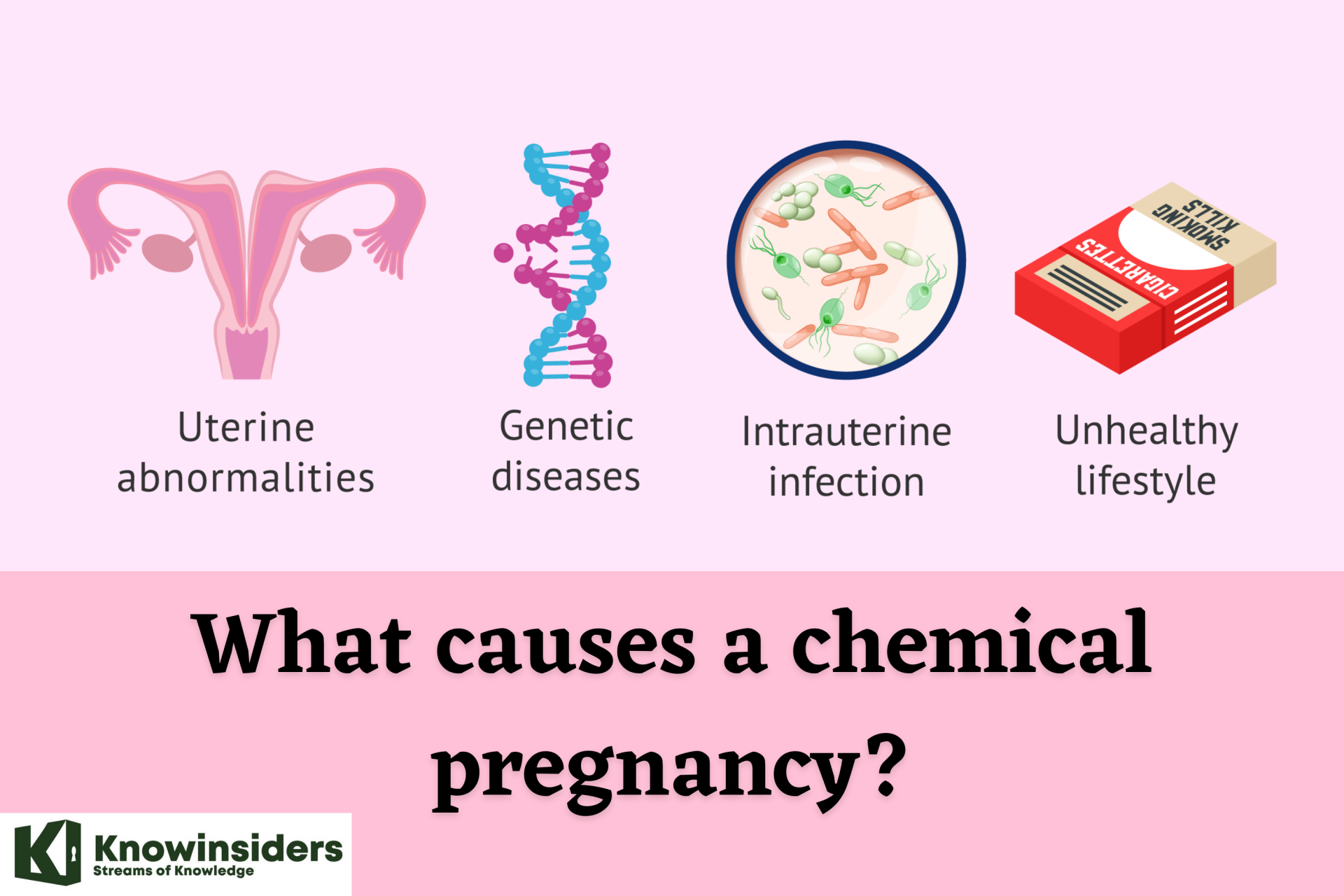 |
| Photo: KnowInsiders |
At the start of a pregnancy, an egg and a sperm combine 23 chromosomes from each partner to form a zygote with 46 chromosomes. The zygote begins to grow through rapid cell division, evolves into a blastocyst, and implants in the uterine wall.Most early pregnancy losses, including chemical pregnancies, are caused by chromosomal abnormalities.
In a chemical pregnancy:
- A sperm or an egg has too many chromosomes or not enough.
- After conception, the resulting zygote (early embryo) also has an abnormal number of chromosomes.
- This chromosomal abnormality causes errors that make it so that the embryo can’t develop normally.
Chromosomal abnormalities occur randomly and can happen to anyone. However, the chance of chromosomal abnormalities increases significantly with age.
Chemical pregnancies definitely don’t mean you won’t be able to get pregnant and stay pregnant in the future.
What are the risk factors of chemical pregnancy?
While you can't prevent a chemical pregnancy, there are some known risk factors. Chemical pregnancies are often identified in women who are undergoing IVF.1 The heightened anticipation of a pregnancy during IVF may lead some couples to test more frequently and earlier than those conceiving naturally.
Other risk factors and untreated conditions that may increase your chances of having a chemical pregnancy include:3
*A blood clotting disorder
*Diabetes
*Maternal age over 35
*Polycystic ovary syndrome (PCOS)
*Thyroid disorder
Could a Chemical Pregnancy Affect The Fertility?A chemical pregnancy shouldn't affect your fertility. The fact that you had a positive pregnancy test is actually a good sign. It means that you can get pregnant again in the future. In studies, women who had a chemical pregnancy after IVF had a higher chance of getting pregnant on their next try. |
Is a chemical pregnancy a real baby?
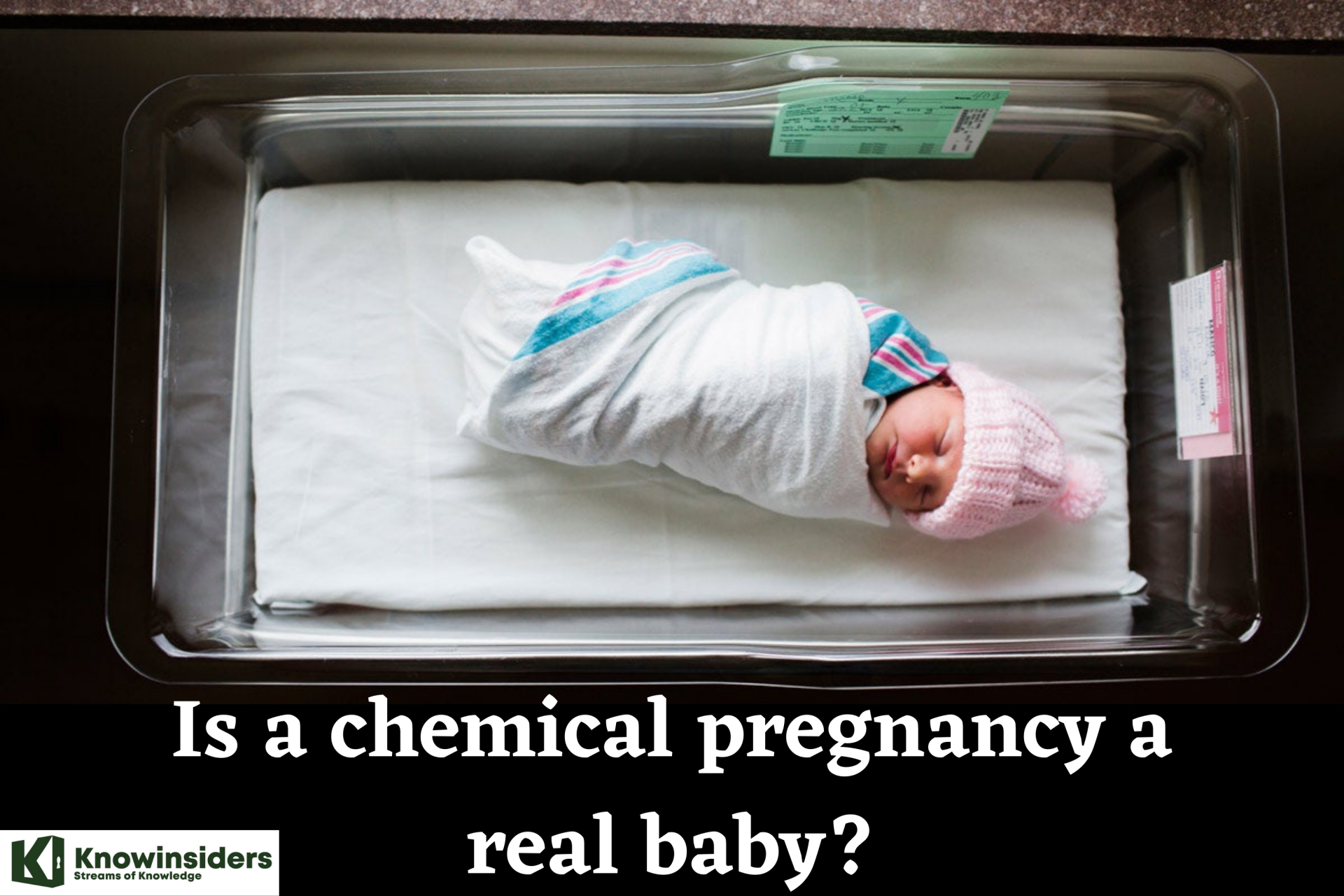 |
| Photo: KnowInsiders |
A chemical pregnancy happens when one of your eggs and sperm combine, but the combination doesn't develop into an embryo. Technically, you've conceived, which is why a pregnancy test might give you a positive result.
The embryo's structure is not perfect, due to the poor coordination of genes or the lack of some genes, leading to the embryo not developing, degenerating, and self-destructing. In this case, if a woman is still able to give birth to a child, the baby is also prone to malformations.
What happens to your body during a chemical pregnancy?
The majority of women who have had a chemical pregnancy never actually realize they’ve conceived, since the only real symptom is a late period. A chemical pregnancy is sometimes revealed when an early pregnancy test shows a faint positive result but later returns a negative result in a week or two.
Since home pregnancy tests are now quite sensitive, many women find out that they are pregnant very early—even before their expected period. The cells of the fertilized egg produce enough of the pregnancy hormone hCG (human chorionic gonadotropin) to elicit a positive pregnancy test result, but then the embryo stops developing.
The loss of a chemical pregnancy will typically happen about a week after your regular period was due.
While some might expect that the menstrual bleeding would be heavier than usual with a chemical pregnancy, it is often the same as a normal period. Other signs of a chemical pregnancy may include:
*Low hCG levels on a blood test
*Mild abdominal cramping or more cramping than usual during a period
*Mild spotting about a week before a normal period is due (this is different than implantation bleeding, or spotting that occurs in early pregnancy)
Because pregnancy hormone levels are present but low in a chemical pregnancy, you wouldn't normally experience any of the other common signs of early pregnancy such as fatigue or nausea.
While a chemical pregnancy typically doesn't harm a woman's body, it can cause emotional distress. Even the earliest pregnancy loss can lead to feelings of deep sadness and grief.
What are the Complications of Chemical Pregnancy?
There aren’t usually any physical complications of a chemical pregnancy, aside from cramping and sometimes heavier-than-usual bleeding. In rare instances, women may experience very heavy bleeding or hemorrhaging after a chemical pregnancy, which can lead to anemia; this requires medical attention.
But keep in mind that any kind of miscarriage can be upsetting, especially if you were trying to conceive or were excited about a positive pregnancy test or you went through fertility treatment. As a result, you may experience stress-related symptoms or mood changes. Some women find that early pregnancy loss can even trigger post-traumatic stress symptoms, such as intrusive or unwanted thoughts about the pregnancy loss, nightmares or flashbacks, hyperarousal, and avoidance of anything that reminds women of their loss.
Be sure to give your body and your mind ample time to recover from the loss. Whatever your feelings are, accept them and allow yourself time to fully process them, perhaps with support from friends, family members, or support groups.
How Many People Have a Chemical Pregnancy?Chemical pregnancies are extremely common — as many as one-third of all pregnancies may be chemical pregnancies, and up to 22 percent of IVF pregnancies may be chemical pregnancies. But in many cases, women don’t even know they were pregnant because the pregnancy loss occurs so early. |
What Is the Treatment for Chemical Pregnancy?
You don't need to treat a chemical pregnancy. But you should have a follow-up visit with your doctor to make sure you don't have an ectopic pregnancy -- an embryo that grows outside of your uterus. An ectopic pregnancy can also cause a positive pregnancy test result. This type of pregnancy can be very dangerous to you if it continues.
During the visit, your doctor can check your health and talk to you about your odds of getting pregnant in the future. Ask when it is safe for you to start trying again.
How to prevent Chemical Pregnancy?
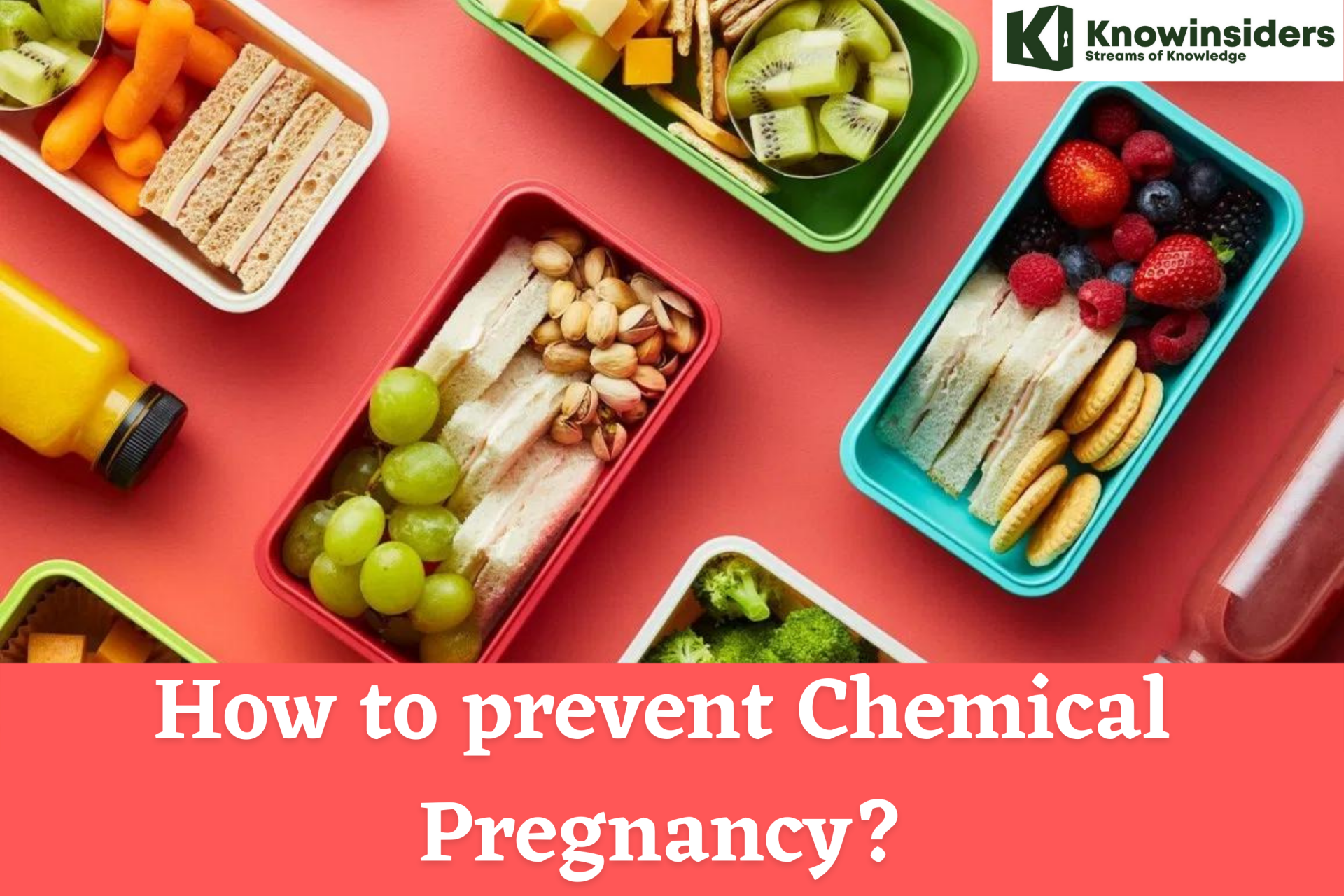 |
| Photo: KnowInsiders |
Since most miscarriages happen because of random abnormalities in chromosomes, there is nothing specific that can be done to prevent them. Maintaining a healthy lifestyle is a good way to maintain a healthy pregnancy, though. Monitoring health and preparing for pregnancy before conceiving can help support a healthy pregnancy. Here are a few steps to practice good pre-pregnancy health:
-Regular exercise
-A healthy diet
-Stress management
-Maintaining a healthy weight
-Eating iron-rich food and taking folic acid every day
-Avoiding smoking and alcohol
-Сontrolling and managing existing medical conditions (e.g., diabetes, thyroid issues, and blood diseases)
How Do I Recover After a Chemical Pregnancy?
Any kind of miscarriage can be hard on both you and your partner. Even a very early pregnancy can be a big loss, especially if you've tried to get pregnant for a long time or you went through IVF. Emotional support is very important at this time.
Give your body time to get over the pregnancy loss. You may have some cramping and bleeding for a few days afterward. Your emotional recovery can take even longer. Friends, family, and your spiritual advisor can help you through the grieving process.
If you feel overwhelmed by grief, talk to your doctor. You may need to see a mental health provider to help you get over the loss.
Chemical pregnancies and IVF
Chemical pregnancies are also a possibility if you’ve gone through in vitro fertilization (IVF) — and in fact, they can occur quite frequently after IVF or another fertility procedure. But the good news is that an early pregnancy loss like this one can mean a greater chance of conceiving in future IVF cycles as compared with women who have only negative pregnancy tests.
While experiencing a chemical pregnancy after undergoing infertility treatments is certainly disheartening and may even prompt you to stop IVF attempts altogether, the science is on your side. Talk with your doctor about your chances of conception and whether another round of IVF is advised.
While chemical pregnancies do not occur more often with fertility therapies, they tend to be identified more often in this situation, because patients getting fertility therapies are often taking many early pregnancy tests.
What is the difference between implantation bleeding and a chemical pregnancy?The difference between implantation bleeding and a chemical pregnancy comes down to timing and amount. When the embryo attaches to the uterus, it's normal to have something called implantation bleeding. This light spotting usually happens around one to two weeks after conception, and it's a sign that you're pregnant. A chemical pregnancy, on the other hand, would cause a normal menstrual period, most often around four to five weeks gestation. |
 What is Business Insurance: Definition, Types and Cost What is Business Insurance: Definition, Types and Cost Business Insurance is one of the most important parts if you want to start a business, which will help protect your businesses against losses. |
 What Is A Money Market Account? What Is A Money Market Account? When it comes to money and savings, it is important to understand how things work, if you choose to open a Money Market Account. |
 What Is The Most Expensive Piece of Jewelry Ever Made? What Is The Most Expensive Piece of Jewelry Ever Made? Tiffany & Co. has released its most expensive piece of jewelry. How much does it cost and what special features does it own? |

